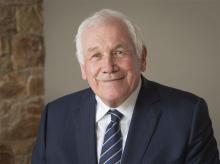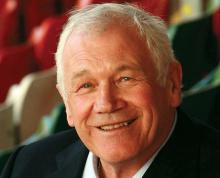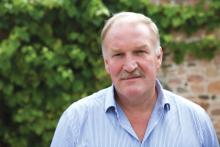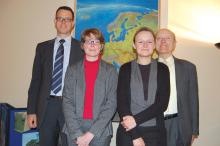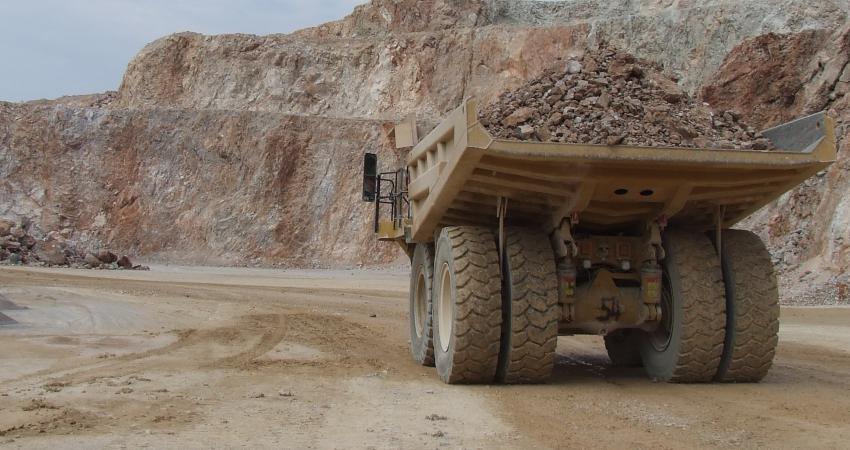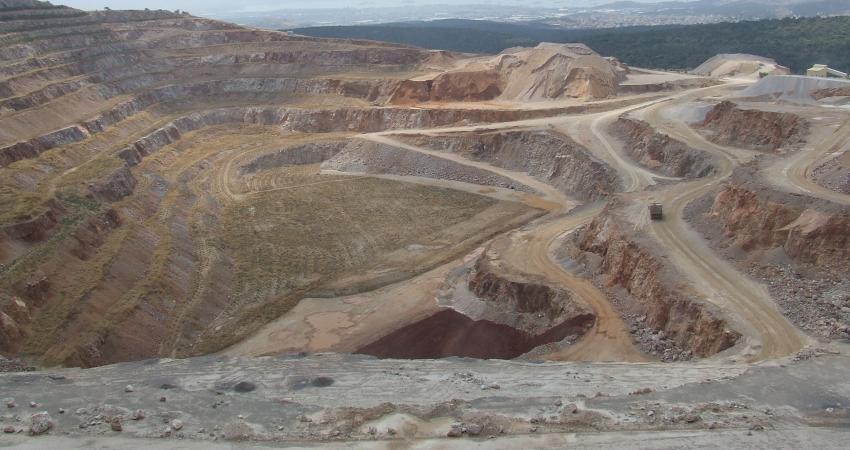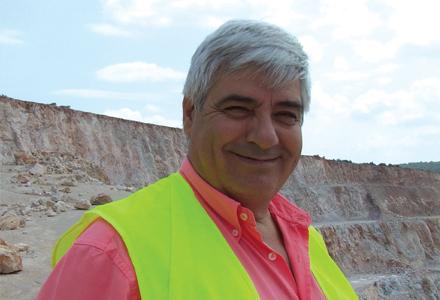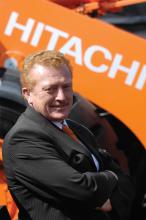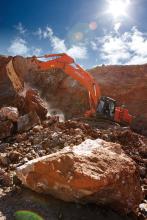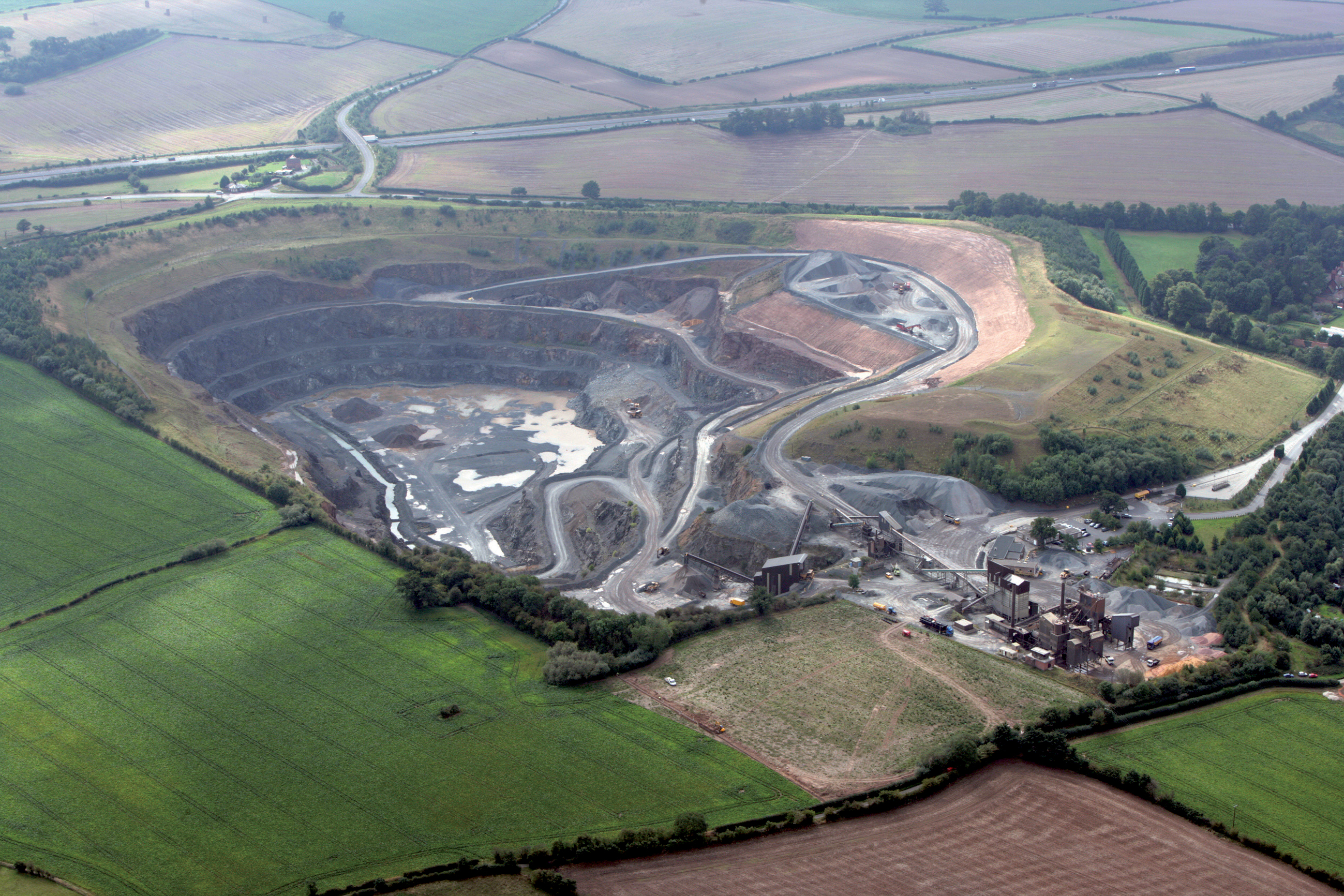
With a real head for figures, peter tom hopes to continue his business success story with his latest venture in Breedon Aggregates, Claire Symes met him to find out more.
After achieving the role of chief executive officer in a major aggregates company and masterminding the sell out to a big multi-national business after leaving school at 16, many people would be happy to retire and relax a bit. But for Peter Tom, it has never been about the money or status, which is why he is now firmly back in the UK aggregates industry following the acquisition of Breedon Aggregates last year.
Former
Tom helped to build Aggregate Industries from the merger of his once family-owned quarry business at Bardon Hill with other UK quarry operators Evered and CAMAS. In 2005 he played a key role in the sale of the business to
His involvement with Marwyn started in in January 2008 and Marwyn Materials was formed when Tom, working with Marwyn, raised £13.5million in July 2008 as a cash shell ready for an acquisition in the aggregates sector.
Tom first met Vivian, who then worked for
Nonetheless, Marwyn's route into the aggregates market was not an especially straightforward one.
"We initially started discussions with Ennstone in 2008 but chose not to proceed at that point as we didn't think the market had reached the bottom of the cycle," said Vivian. "It was clear towards the end of 2008 that many of the financial models in the industry were not working.
Volumes now are 40% below where they were at the start of 2008 and it now seems as if we are bouncing along at the bottom.
"It is hard to value a business during a deepening recession, which is why it was not the right time to buy out Ennstone in 2008." Marwyn started discussions with
Once the deal was negotiated, Marwyn went to the market to raise the £50million needed for the reverse takeover and completed the transaction on 6 September 2010.
While the financial market may have been easily convinced of the potential, the opinions of the workforce are not always so easily won over. Following the reverse takeover of Breedon, Tom and Vivian had three evenings with the employees and personally met more than 600 of the 700 staff within the business. "We wanted to meet everyone face to face to explain our aims for the business and give them a chance to ask any questions," said Tom.
Employees were able to submit questions anonymously and Vivian and Tom answered them during each evening.
"We were made to feel very welcome," said Tom. "That is part of the magic of this industry. Around 20% of the Breedon workforce has a history of long service with the company - that just doesn't happen in other sectors these days. Some of the people at Breedon have faced two years of uncertainty and no pay rises during that time and yet they are still committed to their work." Tom and Vivian have since made a share offer to employees under which they will all receive 500 shares in the business to emphasise the importance of the workforce to the success of the business.
FAMILY FIRM
Talking to Tom it is clear that quarrying and aggregates is a real passion for him and it is an industry that he gets real enjoyment out of being involved with.
With over 50 years' experience of the sector he is also well placed to understand the challenges of the market.
"My Father bought a share in Bardon Hill in the late 1940s and the family moved to Leicstershire from Cornwall in the 1950s," explained Tom. Following the move Tom spent a lot of his youth in the quarry - he was even crushed in an accident there when he was 10 but that didn't put him off the business.
"Quarrying was a big part of the village and I worked alongside the quarrymen who I developed a huge respect for," he said. "I realised quickly how skilled these men were and how talented they were." Tom started working in the quarry after leaving school as soon as he could. "I didn't learn to read until I was 10 but I have always been good with numbers - they just made sense to me - and I also enjoyed sport, which did help me as once I got into grammar school the teachers treated you more as an adult," explained Tom. "But I hated school and left at 16.
"I have noticed that people who struggle with learning can succeed - I think it is because they have a chip on their shoulder that gives them the motivation to achieve their aims. But I think I also have a gift when it comes to making decisions - you have to be ruthless sometimes when it comes to fundamental issues and it is worse not to take control." In addition to his work at Bardon, Tom also developed a rental business - Steer, a housebuilding firm that was later sold to Beezer and even a nightclub in the 1970s.
"If you work for a small business, you find ways of competing and developing," he said.
In 1960 Bardon Hill was producing around 250,000tonnes per year but it had taken a lot of work to reach this level of production. "At the turn of the last century, Bardon - then owned by Everard - was one the country's most modern quarries but almost no investment was made in the business over the next 40 years and conditions were Victorian when my Father took over the business with steam engines and men working by hand," said Tom.
"I find the quarrying business fascinating - I am very aware of the time span of a quarry where planning permissions can cover 30 years of operation or more. This makes you conscious of the time and the impact of your decisions have on the next generation and the environment.
"Working with aggregates and the downstream businesses means you are very much part of the community and it is an important to play a role in the local area." Despite his obvious business success, Tom said that it has never been about the money for him. "It is more about creating something," he explained. "I like the challenge or sorting things out. I grew up in a large family and I was used to dealing with fall outs but we always drew back together again." Tom describes himself as being very instinctive - a skill he believes has played a key role in his success so far.
EXPANSION PLANS
Marwyn has been involved in five other prospective deals but so far Breedon is the only one the company has taken to completion. Nonetheless, it is clear that both Tom and Vivian are keen to build on the Breedon deal.
"Breedon is a nice sized business and a good platform to build from," said Tom.
Tom added that he has great ambitions for Breedon. He is not interested in being the biggest - although Breedon is the sixth largest aggregates business in the UK. He is interested in being the most profitable and setting standards when it comes to the environment and health and safety.
"We are a long way behind the fifth largest operator in the UK but we are regionally strong across the midlands from East Anglia to Wales and in Scotland," he said.
Tom added that he is looking to increase Breedon's regional spread and is actively looking for acquisition targets in the UK. "Around 75% of the UK market is owned by the major operators but we are in talks with some potential targets and we hope to see some developments in this area in the next six months." Barclays has left its core debt in the business for five years and the company has a revolving credit agreement that could help finance any future acquisitions.
Vivian said that there maybe a further share offer in the future and the company is very much focused on delivering return for its shareholders.
"I'm very much enjoying being back in the business and working with the people behind the industry," said Tom. "The employees at Breedon have been very good to work with and are full of ideas on how to improve the business."

